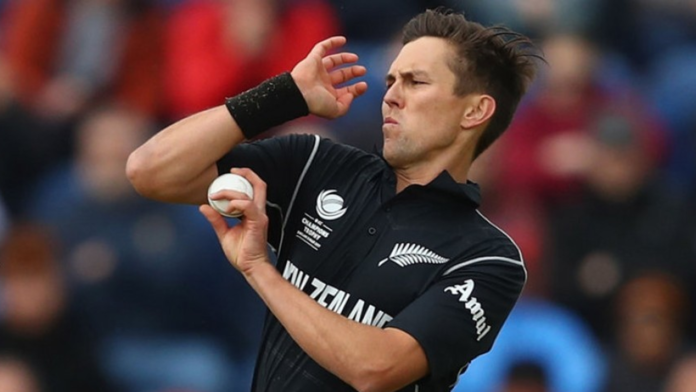The recent contract agreement between pace bowler Trent Boult and New Zealand Cricket (NZC) has sparked a debate within the cricketing community. Former Black Caps coach Mike Hesson and ex-New Zealand batter Craig McMillan have voiced their concerns, describing Boult’s contract as “untidy” and warning that it could set a precedent for other players.
In August 2022, Trent Boult gave up his New Zealand contract, citing a desire to spend more time with his family and participate in franchise cricket tournaments worldwide. While Boult was not included in NZC’s latest central contract list, the board did offer him a casual playing agreement. Furthermore, the left-arm pacer is set to feature in the United States Major League Cricket in addition to his participation in the Indian Premier League (IPL).
Mike Hesson, the former coach of the Black Caps, has expressed reservations about Boult’s contract arrangement. Hesson argues that introducing flexible contracts could create an untidy situation, especially if more players opt for similar agreements. He raises concerns about the potential increase in the number of contracts, which could complicate the overall structure of NZC’s contract system.
“If you want the IPL and two or three or four other tournaments as well, you probably can’t have everything, and that’s a decision you’ve got to make at the start of the year, and I think the flexi contracts just make it a bit untidy. It just gets untidy when you’ve got 20 contracts, or however many are on that (NZC) list now, and then you have an extra one (for Boult), and next year you might have three extra ones, and it just gets untidy.” Hesson said on Sky Sports.
Hesson acknowledges that with the rise of T20 leagues globally, NZC may face the challenge of offering players different contracts based on their circumstances. NZC operates under a model where players are ranked across three different formats, and their cumulative points determine their contract status. However, the flexibility provided by Boult’s contract opens up a new dynamic, potentially requiring NZC to adapt its contract system accordingly.
“Under the current (NZC) model, it doesn’t. You get ranked in three different forms and add the points up, and that’s your number. Everyone has known that, and it’s worked well for an extended period. This flexible contract might work well for Trent, and it might work well for New Zealand Cricket, but it does open up a whole can of worms,” Hesson said.
‘My Relationship With Dhoni And Virat Kohli…’, Gautam Gambhir’s Bold Statement After The Verbal Fight In LSG vs RCB Game
Former New Zealand batter and assistant coach Craig McMillan shares similar concerns regarding Boult’s contract. McMillan questions the timing of Boult’s decision to return to international cricket, considering his previous choice to prioritize T20 leagues. He believes players should commit fully to representing their country and not cherry-pick when playing for New Zealand. McMillan also highlights the potential impact on team dynamics when players return after opting for franchise cricket.
The introduction of flexible contracts, exemplified by Boult’s arrangement, poses opportunities and challenges for NZC. While such contracts may benefit individual players like Boult, allowing them to participate in lucrative T20 leagues while representing the national team, there is a concern that it could disrupt team dynamics and impact player commitment. NZC must carefully navigate these challenges to maintain a cohesive and competitive squad.






















